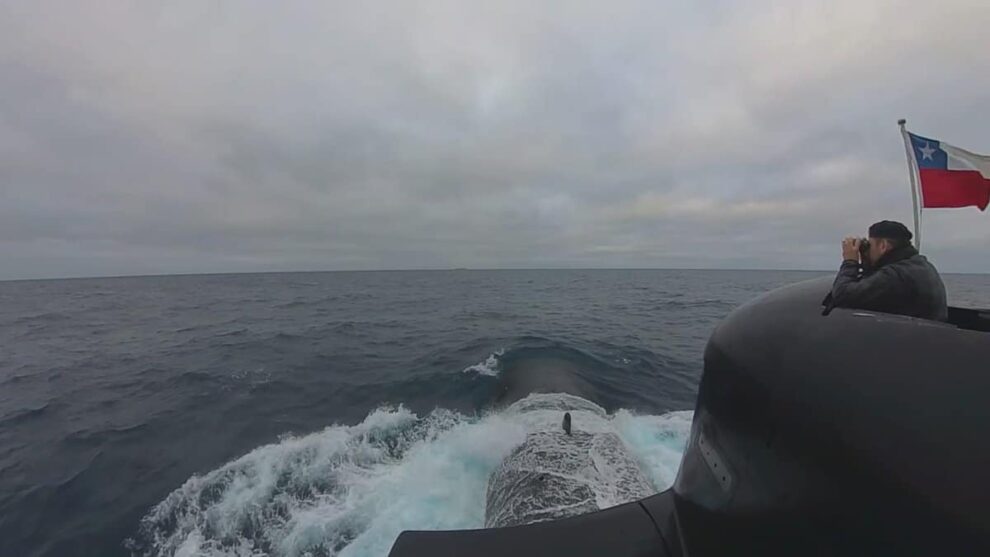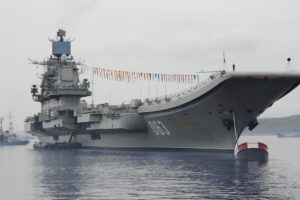The Chilean Navy recently deployed one of its Scorpène-class attack submarines to the Juan Fernández islands in the Eastern Pacific, to “verify and control the transit of foreign fishing vessels through the region.”
According to the Chilean Navy’s X account (previously Twitter), the submarine conducted an “Oceanic Fishing Fiscalization Operation” (Operación de Fiscalización Pesquera Oceánica, in Spanish), as part of Chile’s efforts to prevent illegal fishing activities that harm the local economy of their population in the Juan Fernández and Rapa Nui islands.
The Chilean Navy currently operates six conventional frigates (one Type 22, two M-class and three Type 23), two Adelaide-class guided-missile frigates, a multirole LSDH, two Batral-class LSTs, and four submarines (two Scorpène-class and two U-209-class). According to the Navy, its diesel-electric Scorpène submarines are among the most advanced SSKs in the world at this moment.
Illegal, unreported and unregulated (IUU) Fishing within Chile’s EEZ

As a maritime state, Chile has an EEZ of 1,063,741 square nautical miles, and the world’s tenth largest EEZ. The most common threats to its maritime security include IUU fishing, drug and person trafficking, sea pollution, and natural disasters. More than 90 percent of its commerce transits via the sea.
The Juan Fernández islands, located 362 nautical miles off the mainland, are one of Chile’s oceanic territories, together with the Easter Island (Rapa Nui) located 1,990nm off the mainland. IUU fishing within their Exclusive Economic Zone (EEZ) by foreign actors has been a predominant and enduring threat to its security for many decades, particularly for the economy of the islands.
As the then-mayor of Easter Island, Pedro Edmunds Paoa, declared back in 2015 when discussing a proposal to establish of a marine park in the area to protect it from these threats, “these are highly desirable fishing zones because some species, including tuna, breed here. The park is vital, not only for the island’s 150 permanent fishermen but also for its 7,000 inhabitants, and for our traditions.”
The Chilean Navy has reported vessels operating around the islands under a wide variety of flags, including Russian, Chinese, Korean and Spanish. In most cases, foreign vessels are much larger and capable than the ones used by local fishermen employing the traditional “stone fishing” technique. Adding to the deployment of the submarine to the islands, on December 18, the Puerto Montt Aeronaval Group of the Chilean Navy conducted a maritime patrol operation with its Vulcanair P-68 Observer 2 aircraft. Through these deployments, the Chilean Navy has demonstrated on several occasions its ability to operate far from the mainland to protect its economic and national security interests.

Maritime Security Developments in the South Pacific
Most recently, Chile proposed the establishment of an academic network with the South Pacific Defense Ministers Meeting (SPDMM) countries, to boost academic cooperation among the defense studies institutions of Australia, Chile, France, Fiji, New Zealand, Papua-New Guiney, and Tonga. Founded in 2013, the SPDMM is the only ministerial-level security and defense forum in the South Pacific, to address security issues such as humanitarian assistance and disaster relief (HADR), maritime surveillance, or the fight against illegal fishing.
Source: Naval News
















